Our team is highly trained and experienced in servicing and producing all types of steel supplies. Need help or have a question?
sales@abrasionresistantpipe.com
Tel.: +8621-3378-0199
Our team is highly trained and experienced in servicing and producing all types of steel supplies. Need help or have a question?
sales@abrasionresistantpipe.com
Tel.: +8621-3378-0199

Cast basalt braking tile is a type of durable and wear-resistant material used in industries such as mining, cement, and power plants.
Cast basalt braking tile is a type of durable and wear-resistant material used in industries such as mining, cement, and power plants. It is made from natural basalt rock, which is melted and poured into molds to create tiles of various shapes and sizes.

The tiles are highly resistant to abrasive and erosive wear caused by the movement of heavy machinery, such as conveyor belts, and the transportation of bulk materials. They are also resistant to thermal shock and corrosion, making them ideal for use in harsh environments.
Cast basalt braking tiles are applied to the surface of equipment to provide a protective layer that reduces downtime caused by wear and tear, and extends the lifespan of machinery. They are easy to install and maintain, and can be customized to fit specific applications.
Overall, cast basalt braking tiles offer cost-effective and reliable solutions for industries that require high-performance materials to withstand extreme conditions and maintain efficient operations.
Cast basalt braking tile is made by melting raw basalt rock at temperatures above 1,200°C and casting the molten material into molds of specific sizes and shapes.
Cast basalt braking tiles are known for their high abrasion and impact resistance, making them ideal for use in heavy-duty industrial applications where brake pads are subject to extreme wear and tear.
Some key features and benefits of cast basalt braking tiles include:
In conclusion, cast basalt braking tiles offer exceptional durability and resistance to abrasion and impact, making them ideal for use in heavy-duty industrial applications where brake pads are subject to extreme wear and tear. Other benefits include chemical resistance, low friction coefficient, customization, and environmental safety. They are a reliable and effective solution that can significantly reduce maintenance costs and improve safety in industrial settings.
Cast basalt braking tiles are commonly used in heavy-duty industrial equipment, such as cranes, bulldozers, and trucks. These braking tiles are placed onto the brake pads of the equipment to help stop or slow down the machine when needed.
The high abrasion resistance of cast basalt braking tiles makes them an ideal material for lining brake pads. This is because they can withstand the intense friction and heat that occurs when the brake pad comes into contact with other surfaces.
Some specific applications of cast basalt braking tiles include:
In addition to industrial equipment, cast basalt braking tiles can also be applied in other high-wear areas where durable and abrasion-resistant materials are required such as workshops, storage facilities, and assembly lines.
In conclusion, cast basalt braking tiles are widely used in various heavy-duty industrial applications to improve brake performance, reduce wear, and provide long-term reliability. Their high resistance to abrasion, heat, and chemicals make them a popular choice for machine brake pads, providing a safe and efficient solution for industrial machinery.
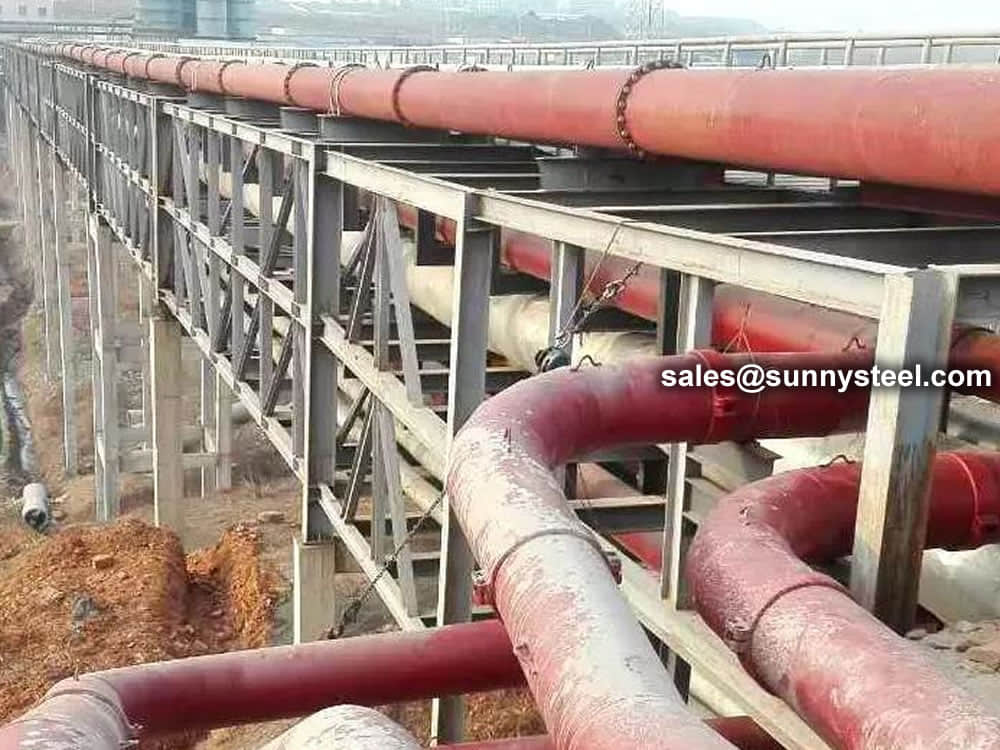
Cast basalt pipes owing to an excellent performance of abrasive and corrosion resistance .It may be used as the liner of pipeline for hydraulic,pneumatic of conveyance of material and corrosion materials or slurry.We can offer the basalt pipes with nominal diameter of 40mm-800mm.
Cast Basalt can be used for the lining of pipework, chutes, bunkers, cyclones, and hoppers. It has become the global standard in areas such as ash slurry pipework, often used at fossil-fuel power stations. It is an all-round cost-effective and adaptable lining material that extends the life of equipment in the pipe or tile form where affected by erosion.
Cast Basalt is well-proven in a variety of industries as a cost-effective, long-lasting lining material used to extend the operating life of equipment manufactured or lined with lower-wearing materials such as steel, cast iron, rubber, and polyurethane.
Cast basalt lined steel pipe, as both a wear—resistant and corrosion—resistant materials, the transport properties of wear or corrosion of materials, after thirty years of practical verification, cast basalt lined steel pipe can be well done.
Cast basalt is also used in cement plants for making air separators, chain conveyor, silica hoppers, nozzles, coal hoppers, cement hoppers, cyclones, raw mill ducts, chutes, thick slurry lines, mixers, grate cooler housing, coal ventury etc.
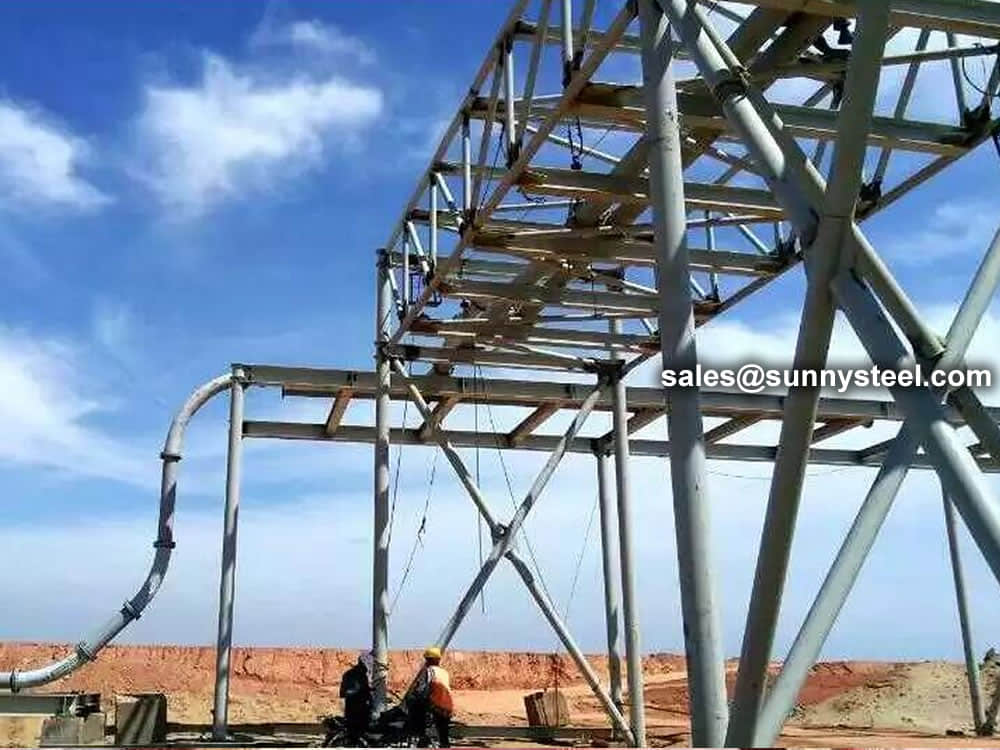
Cast basalt pipes have an excellent performance of abrasive resistant and corrosion resistant, can be used as the pipeline lining in conveying wearable materials and corrosion materials. Such as: electric power plant, chemical plant, metallurgy industry, mine and so on.
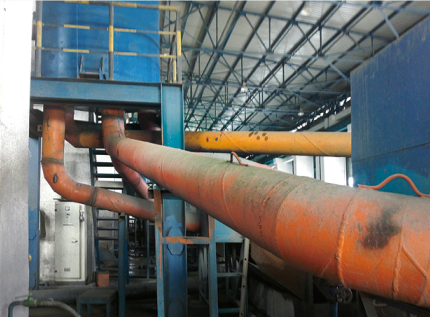
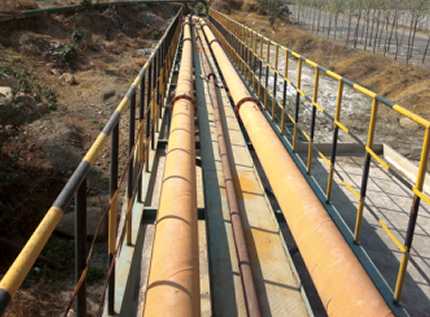
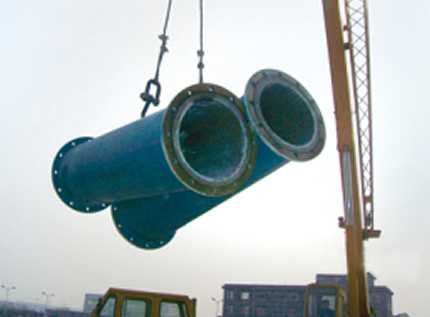
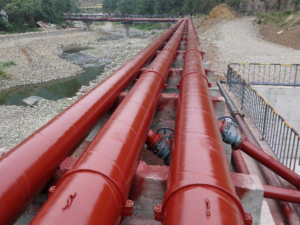
Cast Basalt Composite Pipes Used for Years
 Cast basalt pipe adopts foam packaging, then in accordance with the specifications to put them into wooden cases, sometimes they can be directly loaded into the compartment or container.
Cast basalt pipe adopts foam packaging, then in accordance with the specifications to put them into wooden cases, sometimes they can be directly loaded into the compartment or container.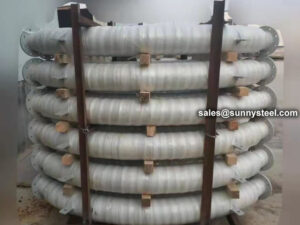
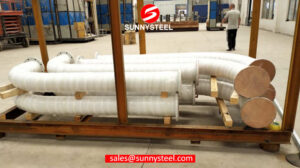
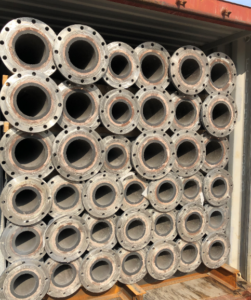
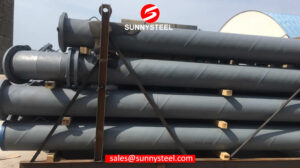
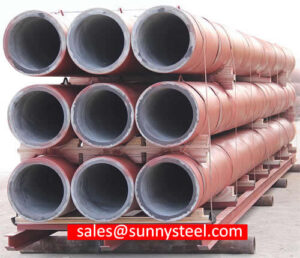
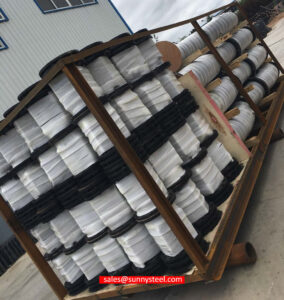
Cast basalt lined pipes and fittings can be supplied with different and connections as per the design requirement to suit the site conditions and easy installation.
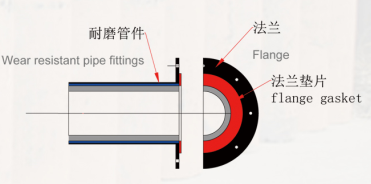
As a standard production, we supply flanged components according to DIN, with at least one movable flange for easy mounting, but pipes with plain ends or for custom coupling are also available. Flange Connection Is One Kind Of Common Pipeline Installation Connections. By Two Pieces Of Flanges, Pipeline, Valve, Equipments Are Connected And It Forms A Tight Piping System. When Pipeline Pressure Is Larger, Flange Connection Is Priority Selection. Flanges Have Lots Of Different Sizes. Flange Size Is Determined According To Pipeline Normal Diameter And Pipeline Operation Pressure.
The parameters of the outside steel pipe will be decided according to the working pressure of the system. The connection of the pipes and fitting will be of flange connections, easy—flexible joint connection or by welding.
By two pieces of flanges, pipeline, valve, equipments are connected and it forms a tight piping system. When pipeline pressure is larger, flange connection is priority section. Flanges have lots of different sizes.
Flange size is determined according to pipeline normal diameter and pipeline operation pressure.
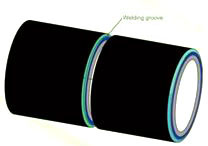
It suits short Distance Pipeline System Without Maintenance. It Is One Kind Of Common Installation Connections. It Requires Installation Personnel Higher Welding Ability. It Also Restricts By Welding Site, Distance, Welding Positions. Welding Connections Is Inconvenient In Later Maintenance.
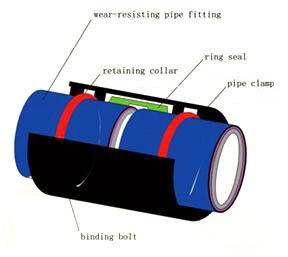
It Is One Of High Efficient And Rapid Installation Connection. I T Has The Below Characteristic: Easily Install And Disassemble, Fast Installation, Temperature Adjustable Compensation Function, Saving The Necessary Expansion In Long Pipeline. Easy-Flexible Joint Also Has Angle Compensation Characteristic. At Smaller Angle Turning Points, Easy-Flexible Joint Can Be Instead Of Bends And Adjust Angle.
1. The bend radius should be minimum 3 times of the nominal bore.
2. At discharge end of each bend, cast basalt lined straight pipe of length 5 to 12 times the nominal bore must be used.
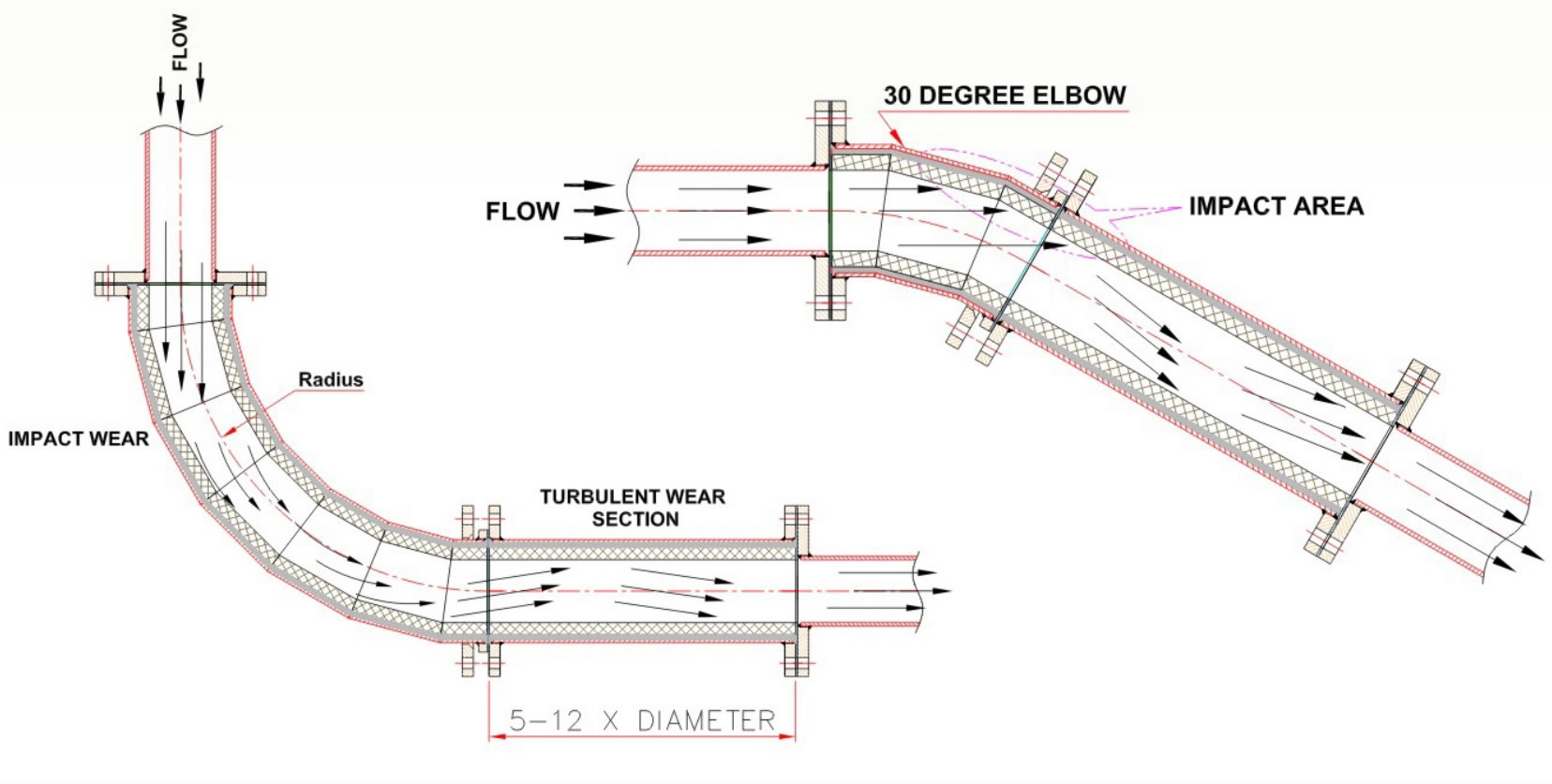
Need to inquire about our products? Fill out the form below and our staff will be in touch!
Q: How long is your delivery time?
A: The delivery time of customized products is generally 25 35 days, and non customized products are generally shipped within 24 hours after payment.
Q: Do you provide samples? Is it free?
A: If the value of the sample is low, we will provide it for free, but the freight needs to be paid by the customer. But for some high value samples, we need to charge a fee.
Q: What are your payment terms?
A: T/T 30% as the deposit,The balance payment is paid in full before shipment
Q: What is the packaging and transportation form?
A: Non steaming wooden box and iron frame packaging. Special packaging is available according to customer needs. The transportation is mainly by sea.
Q: What is your minimum order quantity?
A: There is no minimum order quantity requirement. Customized products are tailor made according to the drawings provided by the customer.